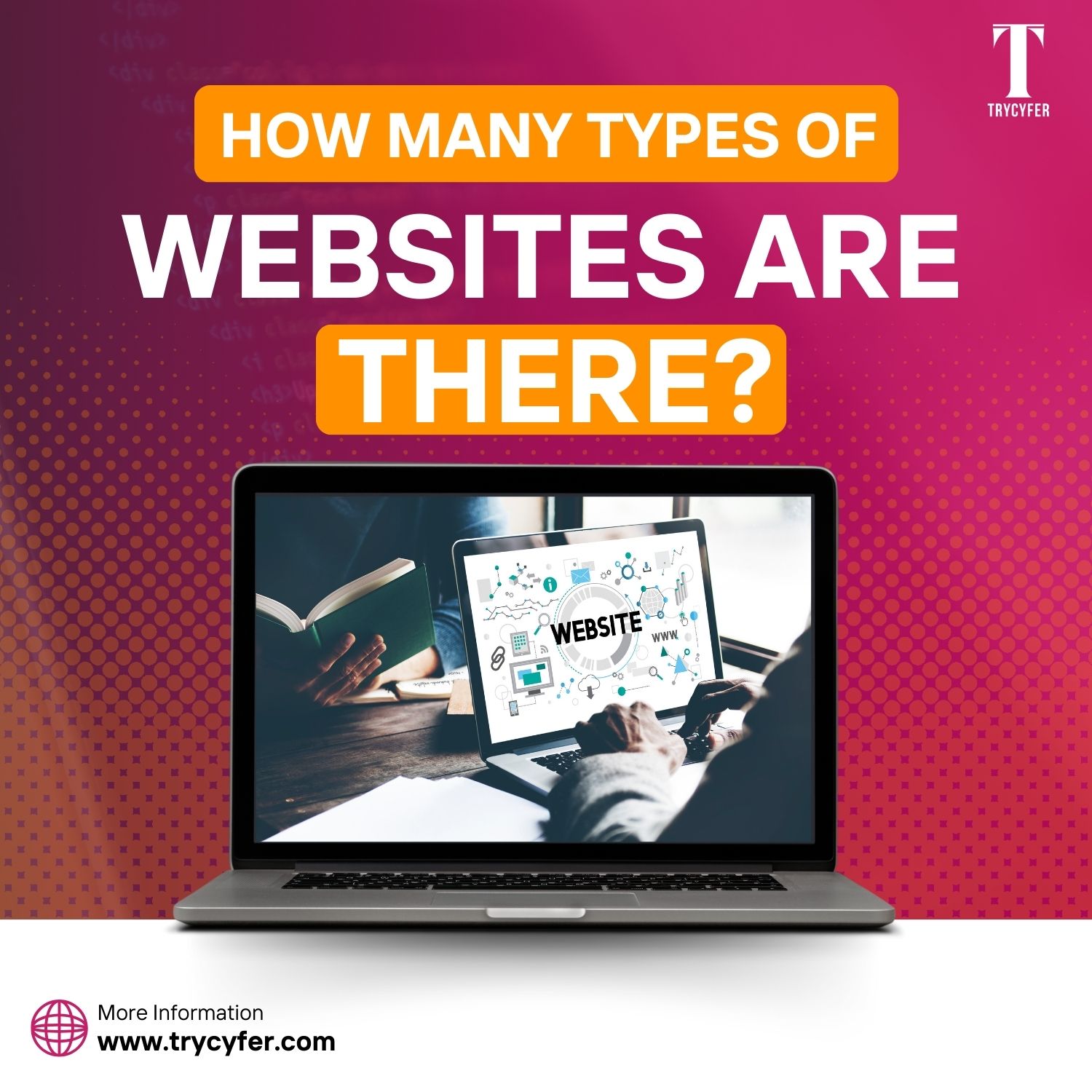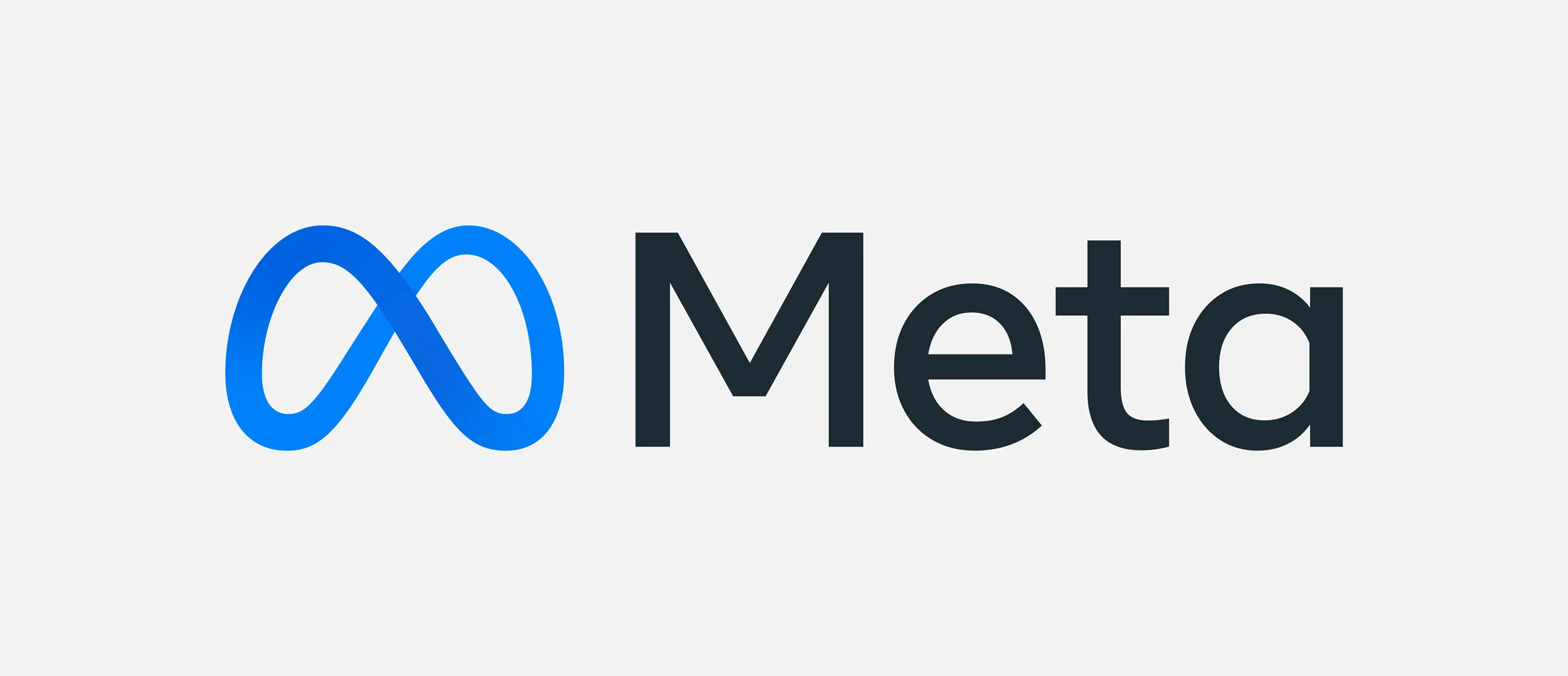How Many Types of Websites Are There?

In the digital age, websites are essential for communication and play an important role in the growth of any business. There are numerous website types, each serving a unique purpose. Websites can range from personal blogs to complex e-commerce platforms, and they are often classified based on their functions, design, and goals.
In this blog, we’ll explore the different types of websites, discuss their specific features, and provide examples to help you understand how each type functions. By the end of this post, you will realise how diverse websites can be and which type might suit your business or personal needs.
Below are the different types of websites
1. Personal Websites
A personal website is your unique online space, allowing you to share your thoughts, hobbies, work portfolios, or life experiences. It can serve as an online journal, a personal blog, or a portfolio showcasing your skills and achievements. You can also use it to express yourself, connect with others, or establish your personal brand.
Key Features:
- Customization for personal preferences
- Blogs or portfolios
- Personal branding
- Simple navigation
2. Business Websites

A business website is essential for any company to establish a solid online presence. These websites are typically designed to provide information about the company’s products, services, and mission. A well-designed business website can help build credibility, attract new customers, and serve as a platform for digital marketing.
Key Features:
- Information about products/services
- Contact details and customer support
- Call-to-action buttons for sales or inquiries
- Integration with social media platforms
3. E-Commerce Websites
E-commerce websites are designed especially for selling products or services online. They allow users to browse items, add them to their shopping carts, and buy using various payment methods. E-commerce sites can range from small, single-product stores to significant marketplaces like Amazon or eBay.
Key Features:
- Product catalogs with detailed descriptions and images
- Shopping cart and checkout functionality
- Secure payment gateways
- Customer reviews and ratings
4. Portfolio Websites
Creative professionals such as photographers, graphic designers, artists, and writers use portfolio websites to showcase their work. These sites serve as an online gallery and often help individuals land new clients or job opportunities. Portfolios are focused on design, usability, and aesthetically pleasing content.
Key Features:
- High-quality images and examples of work
- Easy-to-navigate gallery or portfolio sections
- Contact form for potential clients
- Minimalistic design to focuses on content
5. Blog Websites

Blogs share articles, stories, or thoughts on a particular topic. Blogs are often updated frequently with new content and can cover various topics, from technology to travel. Some blogs focus on personal experiences, while others are more professional or business-oriented.
Key Features:
- Regularly updated content (posts or articles)
- Categories and tags to organize posts
- Reader comments and social media sharing options
- Search functionality to find specific content
6. News Websites
News websites are designed to deliver current events, reports, and updates to their readers. These websites can be general, covering topics like politics, entertainment, and sports, or they can be specialized, focusing on a single niche. News websites are dynamic and updated frequently, often several times a day.
Key Features:
- Latest news articles and headlines
- Categories for different news topics (e.g., sports, politics)
- Multimedia elements such as videos and images
- Comment sections for reader engagement
Read Also: How to Check Responsiveness of Website
7. Educational Websites
Educational websites are created to provide information, resources, and learning materials for students, teachers, and anyone interested in acquiring knowledge. These websites can offer everything from free tutorials and online courses to paid certifications and degrees.
Key Features:
- Online courses or tutorials
- Quizzes, exercises, or interactive content
- Student and teacher accounts for learning management
- Discussion forums or support communities
8. Nonprofit Websites

Nonprofit organizations use websites to spread awareness about their causes, raise funds, and gather volunteers. These sites typically provide information about the organization’s mission, ongoing projects, and ways to get involved. Donation options and contact forms are also standard on nonprofit websites.
Key Features:
- Mission statement and organizational goals
- Donation buttons and fundraising tools
- Event calendars and volunteer sign-up forms
- Testimonials and success stories
9. Social Media Websites
Social media websites allow users to create profiles, share content, and interact with others. These sites are designed for networking, communication, and content sharing, allowing users to connect with friends, family, or professional contacts. Social media websites can also serve as powerful marketing tools for businesses.
Key Features:
- User profiles with photos and bios
- Friend or follower systems
- Messaging and commenting functionality
- User-generated content sharing (e.g., posts, images, videos)
10. Forum Websites
Forums are online discussion boards where users can post and reply to messages on various topics. Forums allow people to ask questions, share information, and engage in community discussions. They are often niche-focused, catering to specific interest groups or hobbies.
Key Features:
- Threads for different discussions or topics
- User profiles and participation stats (posts, likes)
- Moderation to ensure quality discussions
- Search functionality to find specific threads or posts
Read Also: How to Create Website for Business?
11. Wiki Websites
Wiki websites are collaborative platforms where users can add, edit, and manage content. Wikipedia is the most well-known example of a wiki, where anyone can contribute to creating and maintaining articles. Wikis are often used for knowledge-sharing and collaborative projects.
Key Features:
- User-generated content
- Easy-to-edit pages for collaboration
- Revision history to track changes
- Search functionality for finding articles or topics
12. Landing Pages

Landing pages are single web pages designed to promote a product, service, or event. They are usually part of marketing campaigns intended to drive user action, such as signing up for a newsletter, downloading a free resource, or purchasing.
Key Features:
- Clear call-to-action (CTA)
- Minimal design focused on conversion
- Lead capture forms (e.g., email signup)
- Testimonials or customer reviews
13. Membership Websites
Membership websites are versatile platforms that can offer a wide range of exclusive content, services, or products to registered users. These sites, often requiring a subscription fee or payment for access, can cater to various needs and interests. Examples include online courses, private communities, and resource libraries. The flexibility they offer makes them a great fit for many businesses looking to build recurring revenue models.
Key Features:
- Member registration and login
- Exclusive content behind a paywall
- Subscription or payment plans
- Member forums or communities
Conclusion
Many types of websites are designed to serve a specific purpose. Whether you’re running a personal blog, an e-commerce platform, or a membership site, choosing the right type of website to align with your goals is essential. Understanding the unique features of different websites allows businesses and individuals to craft an effective online presence that resonates with their target audience.
Trycyfer Technologies can help you build a website for your business. Our web development experts specialise in creating custom websites tailored to your business needs. Whether you need an e-commerce site, a portfolio, or a corporate website, Trycyfer can provide the expertise to bring your vision to life. Visit Trycyfer Technologies to learn more about our services and start building the website that will take your business to the next level.











